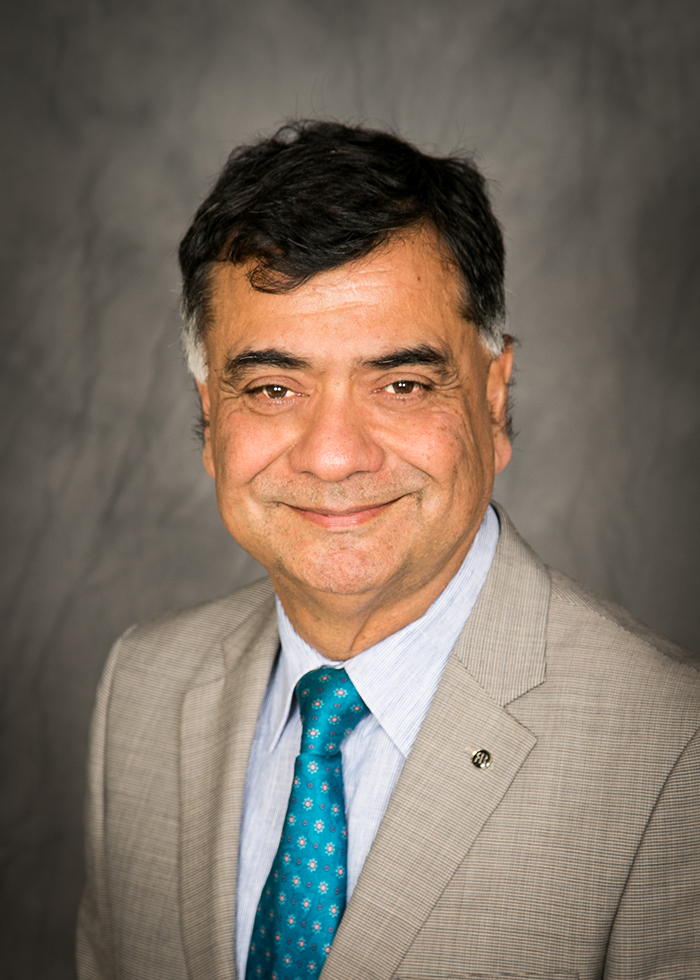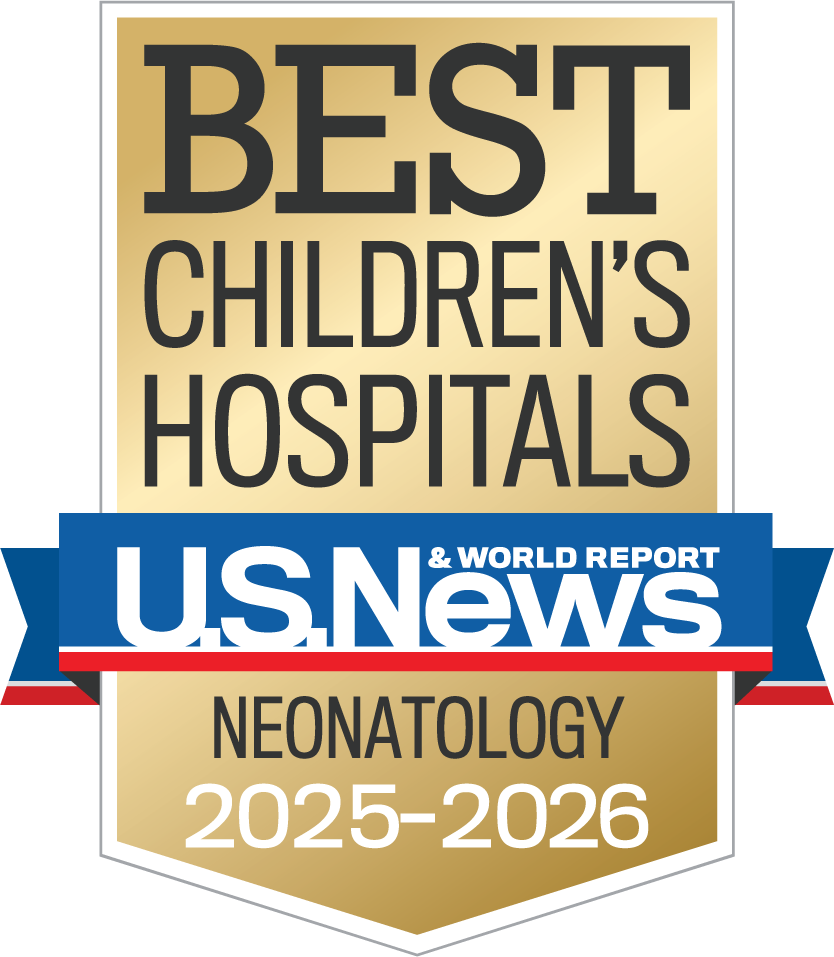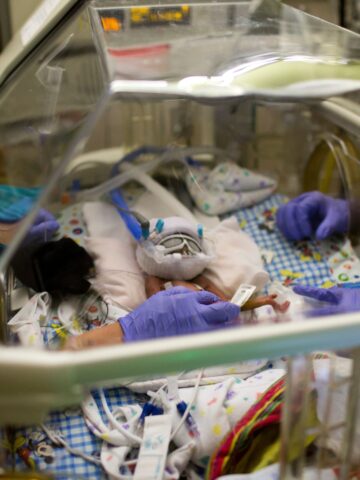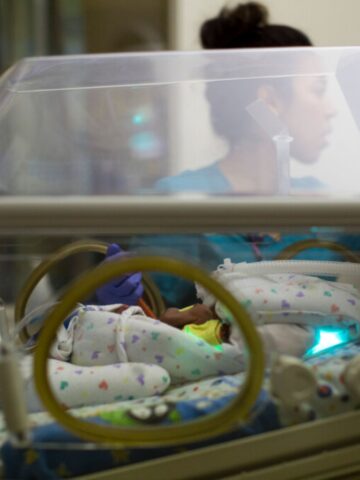Even a quaternary neonatal center like CHOC may only see a patient with neonatal arteriovenous malformation (AVM) every three to five years. When such an infant presented at CHOC, neonatologists drew on the hospital’s advanced neurointerventional surgery capabilities to perform a lifesaving procedure.
“Infants who present with AVM have a very high risk of mortality and morbidity,” says Dr. Vijay Dhar, division chief of neonatology at CHOC. “Even with treatment, approximately one-third of young AVM patients die, and among those who survive, there is high risk for developmental delays if not recognized in an early fashion.”

Suspecting an unlikely diagnosis
According to Dr. Dhar, symptomatic infantile cerebral AVM is seen in no more than 5 of 100,000 children. This rarity complicates and prolongs the diagnostic process, as most physicians will never see a case of AVM and are therefore unlikely to suspect the condition.
Born full-term and asymptomatic, a local infant was discharged in a typical timeframe. When the family noticed the baby was having difficulty breathing, they presented to a nearby hospital. Physicians initially suspected the child was going into heart failure. Oxygen to maintain O2 blood levels was provided, and an X-ray suggested pulmonary edema.
The first symptom of AVM within the neonate population is often heart failure. Though exceptionally rare, specialists were suspicious of AVM and ordered an ultrasound for further study. The ultrasound was compatible with their hypothesis.
A higher level of care was indicated and the baby was referred to CHOC. Upon arrival, magnetic resonance venography (MRV) was prescribed to evaluate the cerebral vessels. This test confirmed the diagnosis of AVM and pinpointed the abnormal vessels that required immediate embolization.
Successful neurointerventional surgical approach
Following multidisciplinary consultation, CHOC specialists determined that the most efficacious treatment would be embolization of the cerebral arteriovenous fistulas, considered the gold standard for brain AVM cases in young patients.
When managing frail patients, multiple issues must be considered simultaneously. In this particular case, the infant’s heart failure had to be managed to enable the baby to undergo the procedure safely and result in a positive outcome.
Forty-eight hours after admission to CHOC, neurointerventional surgeon Dr. Shuichi Suzuki performed the embolization on the 17-day-old child. The patient responded well to the procedure, improved dramatically and was discharged 20 days later with no signs of heart failure.
“It was a difficult procedure but it was successful,” Dr. Suzuki says. “It was a great example of our multidisciplinary approach to a difficult case, with involvement from neurosurgery, the neonatal intensive care unit and cardiology, in addition to neurointerventional surgery and anesthesiology.”
With all neonatal AVM cases, there is risk for future hemorrhage. The patient will follow up with neurosurgeons and neuroradiologists for future staged procedures, including additional embolization at six months post-discharge. Other surgical interventions may be prescribed moving forward, based on patient status.
Experience and expertise matter
When dealing with rare diseases and disorders, recognizing such conditions is the first step to successful treatment and positive outcomes. Because AVMs are a leading cause of spontaneous intracranial hemorrhage within the pediatric population and often lead to death, early diagnosis is vital.
However, brain angiograms, MRV and other diagnostic tools alone are insufficient to provide optimal outcomes. Once diagnosed, the condition must be addressed by a competent, multidisciplinary team of neonatal experts. This improves the patient’s likelihood of survival and avoids significant developmental delays.
“Successful treatment of AVM depends on the skills and expertise of the neonatologists involved,” Dr. Dhar says. “This success story is due to CHOC having advanced neurointerventional surgery capabilities and a mobilized multidisciplinary team that is able to perform even the rarest procedures with skill and precision.”

CHOC was named one of the nation’s best children’s hospitals for neonatology by U.S. News & World Report in its 2025-26 Best Children’s Hospitals rankings.




